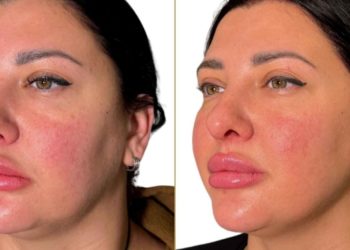Molecules known as antioxidants can assist your body in fending off dangerous free radicals, which have been connected to diseases including cancer and diabetes. Antioxidants can come from artificial or natural sources. Some antioxidants are known as endogenous antioxidants, and the body naturally manufactures some of them. Exogenous antioxidants are those that need to be taken from external sources.
Numerous foods made from plants, such as fresh fruits and vegetables, contain antioxidants. Some examples of antioxidants include vitamins C and E in supplements such as glutathione tablets. Read the following blog to learn more.
Multiple Health Benefits of Antioxidants
Antioxidants are very essential for all living beings. Some antioxidants are produced by our bodies, such as glutathione. Similarly, all living things, including plants and animals, have natural defenses against oxidative damage and free radicals. Therefore, every complete diet obtained from plants or animals contains antioxidants. Consuming enough antioxidants helps protect our body tissues from cell damage or the oxidative stress that free radicals cause.
Some things that cause oxidative stress in the body include:
- Mitochondrial activity
- Doing too much exercise
- Trauma to tissues caused by inflammation and injury
- Eating refined and processed foods
- Smoking
- Polluted air, water, and foods
- Radiation
- Exposure to certain chemicals, such as pesticides and drugs
- Chemotherapy
- Industrial solvents.
Antioxidants defend our body tissues from the damaging effects of these factors.
Types of Antioxidants
There are two kinds of antioxidants: fat-soluble and water-soluble. While fat-soluble antioxidants mostly function in cell membranes, water-soluble antioxidants work in the fluid both inside and outside of cells.
Some important antioxidants available in different foods include:
- Vitamin C – This nutrient is crucial for diets since it is a water-soluble antioxidant.
- Vitamin E – This fat-soluble antioxidant is essential for preventing oxidative damage to cell membranes.
- Flavonoids – Numerous positive health effects are associated with this class of plant antioxidants.
There are many antioxidants that also serve other important functions. Two well-known examples are oleocanthal found in extra virgin olive oil and curcuminoids found in turmeric. In addition to their strong anti-inflammatory properties, these compounds serve as antioxidants. Similarly, omega-3 fatty acids also have anti-inflammatory and antioxidant effects and can be obtained via seafood, eggs, or omega 3 capsules.
How to Get Antioxidants?
You can get a healthy dose of some antioxidants from foods as follows:
- Alium sulphur compounds – onions, leeks, garlic
- Anthocyanins – grapes, eggplant, and berries
- Beta-carotene – spinach, mangoes, apricots, pumpkin, carrots, and parsley
- Catechins – red wine and tea
- Copper – lean meat, seafood, milk and nuts
- Cryptoxanthins – pumpkin, red capsicum, and mangoes
- Flavonoids – citrus fruits, green tea, onion, red wine, and apples
- Vitamin A – carrots, milk, sweet potatoes, liver, and egg yolks
- Vitamin C – blackcurrants, kiwifruit, oranges, mangoes, spinach, broccoli, capsicum and strawberries
- Vitamin E – vegetable oils, avocados, seeds, nuts and whole grains.
You can either consume these foods for antioxidants or rely on health supplements such as multivitamin tablets.
Key Takeaways
Antioxidants are our body’s natural defenses against the oxidative damage caused by pollution, fast foods, aerobic activities, chemical exposure, etc. They are naturally present in all living things and can be obtained by consuming plant- or animal-based products or through supplements such as multivitamin tablets. Ensure you talk to your doctor before adding any supplements to your diet.













































































